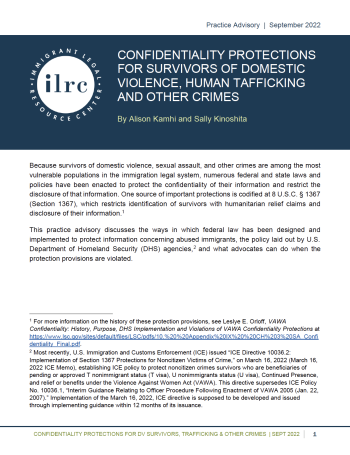
Because survivors of domestic violence, sexual assault, and other crimes are among the most vulnerable populations in the immigration legal system, numerous laws and policies have been enacted to protect the confidentiality of their information and restrict the disclosure of that information. One source of important protections is codified at 8 U.S.C. § 1367 (Section 1367), which restricts identification of survivors with humanitarian relief claims and disclosure of their information.[1] This practice advisory discusses the ways in which federal law has been designed and implemented to protect information concerning abused immigrants, the policy laid out by U.S. Department of Homeland Security (DHS) agencies, and what advocates can do when the protection provisions are violated.
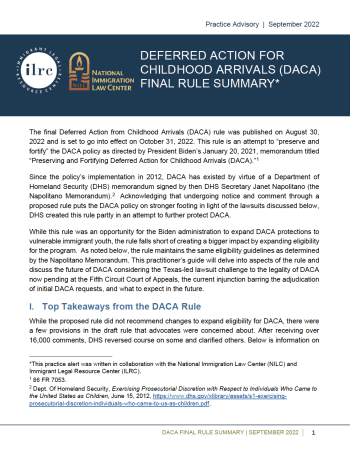
The final Deferred Action for Childhood Arrivals (DACA) rule was published on August 30, 2022 and is set to go into effect on October 31, 2022. This rule is an attempt to “preserve and fortify” the DACA policy as directed by President Biden’s January 20, 2021, memorandum titled “Preserving and Fortifying Deferred Action for Childhood Arrivals (DACA).” This practitioner’s guide delves into aspects of the rule and discusses the future of DACA considering the Texas-led lawsuit challenge to the legality of DACA now pending at the Fifth Circuit Court of Appeals, the current injunction barring the adjudication of initial DACA requests, and what to expect in the future.
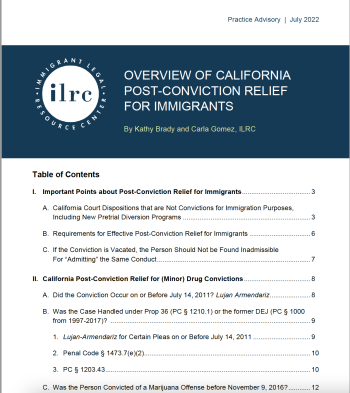
Thousands of noncitizens in California are at risk of removal or cannot qualify for immigration relief because they have unlawfully imposed criminal convictions. The good news is that there are several options under California law to eliminate these convictions for immigration purposes, using post-conviction relief (PCR). This Advisory can help advocates to identify which of these forms of California PCR may help your client, and direct you to more resources about how to obtain it.
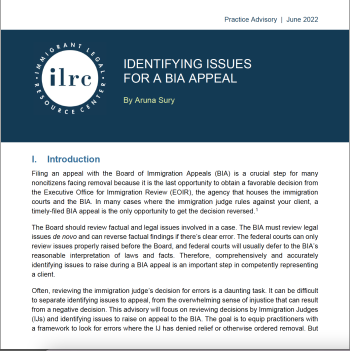
Filing an appeal with the Board of Immigration Appeals (BIA) is a crucial step for many noncitizens facing removal because it is the last opportunity to obtain a favorable decision from the Executive Office for Immigration Review. Often, reviewing the immigration judge’s decision for errors is a daunting task. It can be difficult to separate identifying issues to appeal, from the overwhelming sense of injustice that can result from a negative decision. This advisory will focus on reviewing decisions by Immigration Judges (IJs) and identifying issues to raise on appeal to the BIA. The goal is to equip practitioners with a framework to look for errors where the IJ has denied relief or otherwise ordered removal.
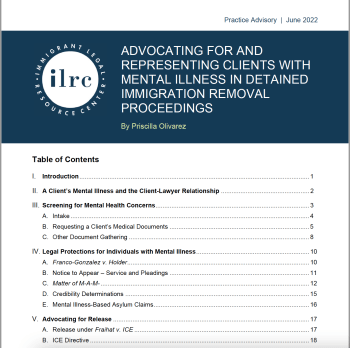
Clients with mental illness have needs and vulnerabilities that present unique challenges in immigration proceedings. This practice advisory provides an overview on advocating for clients with mental health issues, specifically focusing on representation in the detained setting. The advisory discusses legal authority that an immigration practitioner can utilize to protect a client’s due process rights and ensure their client’s agency is respected and they have a meaningful opportunity to present their case.
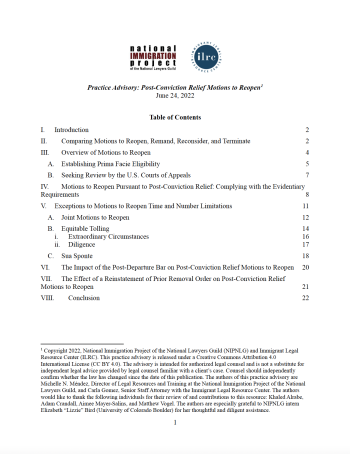
This advisory provides detailed instruction on how and where to file a motion to reopen for attorneys who have successfully vacated a conviction for immigration purposes and their client is now eligible for termination or a form of relief. In addition, the advisory addresses the impact of the post-departure bar and reinstatement of prior removal order on post-conviction relief motions to reopen.
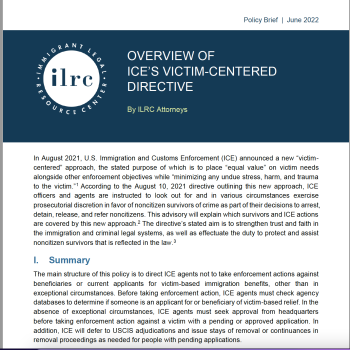
This advisory provides an overview of ICE’s new “victim-centered” approach to immigration enforcement based on an August 2021 directive, including who qualifies as a victim and which ICE actions are covered. As part of this new approach, ICE officers and agents are instructed to look out for and in various circumstances exercise prosecutorial discretion in favor of noncitizen survivors of crime as part of their decisions to arrest, detain, release, and refer noncitizens.

This advisory describes the various ways that persons with disabilities can navigate the naturalization process, including requesting accommodations, seeking an N-648 disability waiver of the English/civics requirement, and applying for an oath waiver. The advisory describes recent changes to the USCIS’s policy manual and upcoming changes to the N-648.
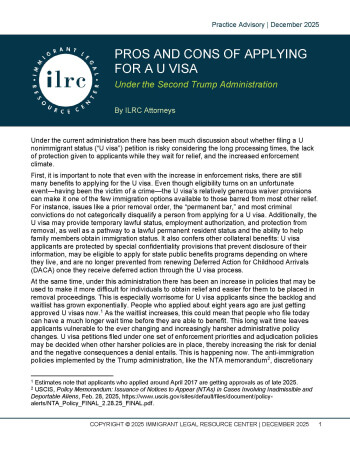
Under the current administration there has been much discussion about whether filing a U nonimmigrant status (“U visa”) petition is risky considering the long processing times, the lack of protection given to applicants while they wait for relief, and the increased enforcement climate. This advisory will lay out some of the main “pros” and “cons” to applying for U nonimmigrant status as they exist now, to help practitioners explain to prospective applicants how to weigh benefits and risks and make an informed decision on how to proceed with their case.
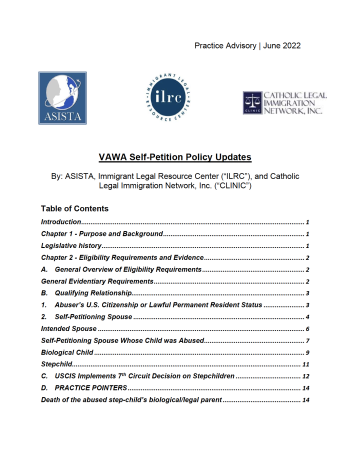
On February 10, 2022, USCIS released several VAWA Self-Petition policy changes. The changes include the nationwide implementation of two circuit court decisions and changes in USCIS’s interpretation of the joint residence requirement for VAWA Self-Petitioners. This practice advisory contains short summaries of USCIS’s VAWA Self-Petition policy changes.